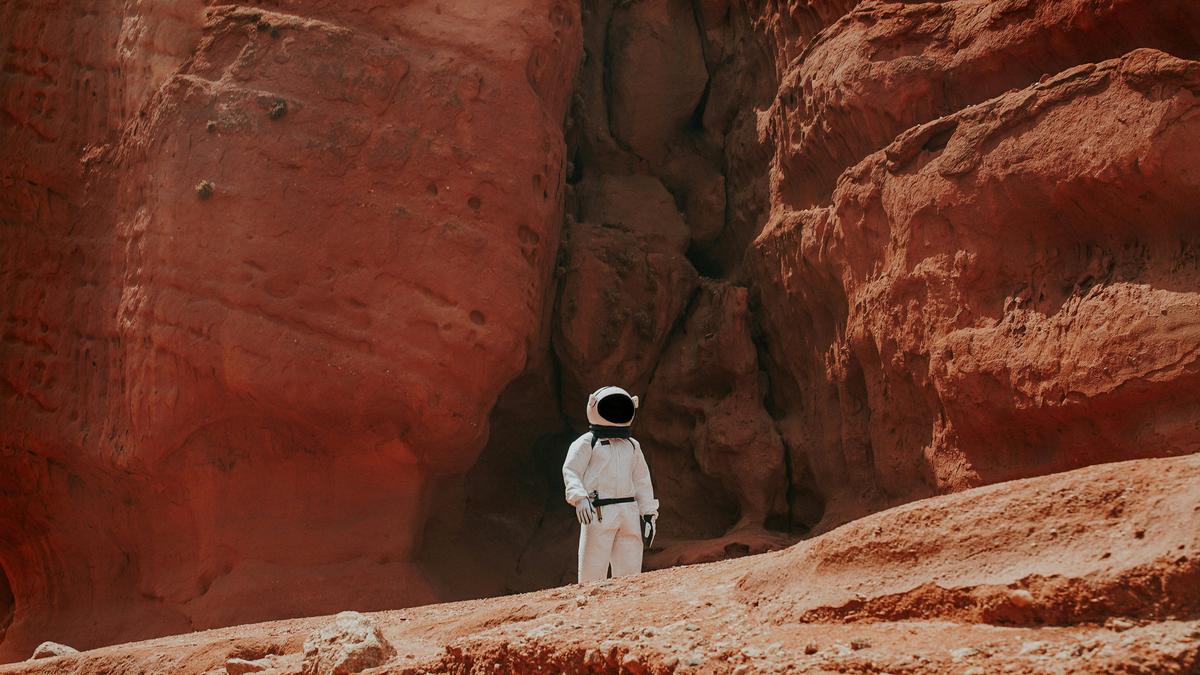
Human DNA will have to be edited if humans are to settle on other planets
The Hindu
Exploring genome editing for human space travel, including resistance to radiation and environmental stress in deep space.
When considering human settlements on the Moon, Mars and further afield, much attention is given to the travel times, food and radiation risk. We’ll undoubtedly face a harsh environment in deep space and some thinkers have been pointing to genome editing as a way to ensure that humans can tolerate the severe conditions as they venture further into the solar system.
In January, I was fortunate to attend a much-anticipated debate between astronomer royal Martin Rees and Mars exploration advocate Dr Robert Zubrin. The event at the British Interplanetary Society took on the topic of whether the exploration of Mars should be human or robotic.
In a recent book called ‘The End of Astronauts’, Rees and co-author Donald Goldsmith outline the benefits of exploration of the solar system using robotic spacecraft and vehicles, without the expense and risk of sending humans along for the ride. Dr Zubrin supports human exploration. Where there was some agreement was over Rees’s advocacy of using gene editing technology to enable humans to overcome the immense challenges of becoming an interplanetary species.
Our genome is all the DNA present in our cells. Since 2011, we have been able to easily and accurately edit genomes. First came a molecular tool called Crispr-Cas9, which today can be used in a high school lab for very little cost and has even been used on the International Space Station. Then came techniques called base and prime editing, through which miniscule changes can be made in the genome of any living organism.
The potential applications of gene editing for allowing us to travel further are almost limitless. One of the most problematic hazards astronauts will encounter in deep space is a higher dosage of radiation, which can cause havoc with many processes in the body and increase the longer-term risk of cancer.
Perhaps, using genome editing, we could insert genes into humans from plants and bacteria that are able to clean up radiation in the event of radioactive waste spills and nuclear fallout. It sounds like science fiction, but eminent thinkers such as Rees believe this is key to our advancement across the solar system.
Identifying and then inserting genes into humans that slow down aging and counter cellular breakdown could also help. We could also engineer crops that resist the effects of exposure to radioactivity as crews will need to grow their own food. We could also personalise medicine to an astronaut’s needs based on their particular genetic makeup.

The girl, who was admitted to Aster CMI Hospital with alarming breathlessness and significant pallor, was diagnosed with Wegener’s Granulomatosis (now known as Granulomatosis with Polyangiitis or GPA), a rare autoimmune condition that causes spontaneous bleeding in the lungs, leading to acute respiratory failure.

ACB files case against IPS officer N. Sanjay in Andhra Pradesh. The official is accused of manipulating the tender processes for awarding contract for development and maintenance of AGNI-NOC portal, and conducting awareness meetings for SC/STs. It is alleged that the total value of properties stolen, or involved in the case is estimated at ₹1,75,86,600.









